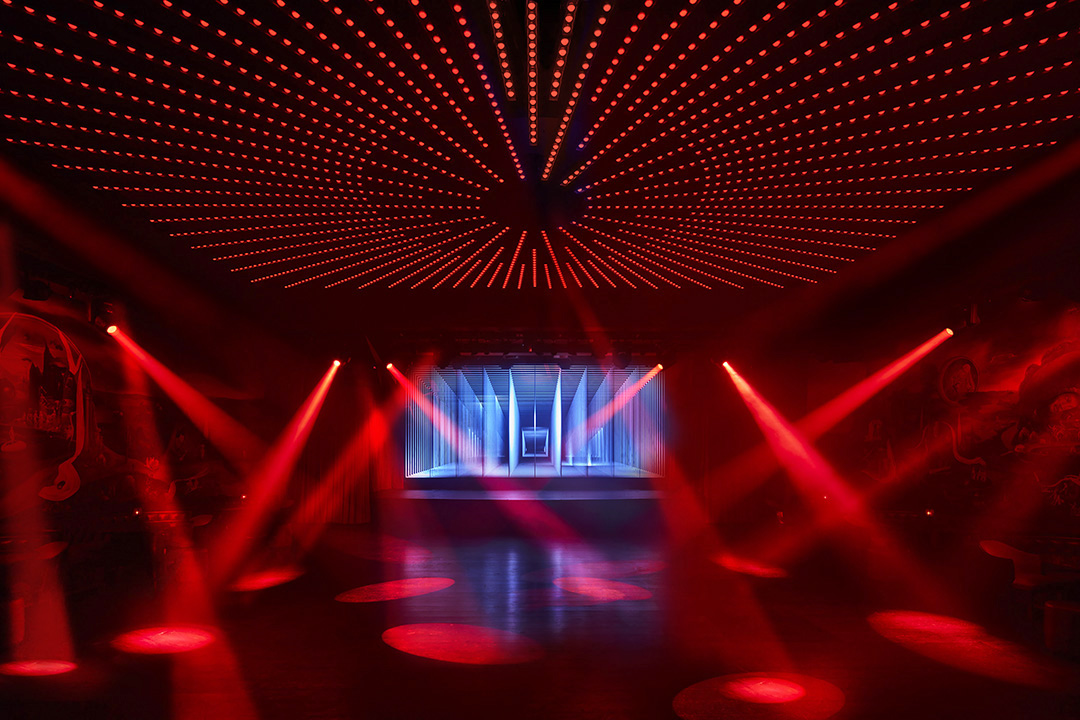Integrating for the Hospitality Experience
Hotel developers are constantly on the lookout for ways to stand out from their competition, creating experiences guests won’t be able to resist Instagramming. Many developers look to technology integrators to provide industry-leading solutions that will improve the overall guest experience. Not surprisingly, the concepting and development process is rarely an easy one.

“Major hotel brands have a high standard to meet and are required to upgrade their technology every seven years to maintain their standing,” said Megan Zeller, business development director, Peerless-AV. “To meet this need, hospitality clients are looking to integrators to ensure they are receiving their solutions in a timely manner. For integrators, though, this becomes a challenge, as many hospitality venues do not have additional storage space on site to house the new units, thus causing integrators to schedule delivery and install for the same day, or planning installations in phases.”
It’s an integrator’s job to frame expectations, sketching out a picture of what the client can expect to accomplish based on their budget. Zeller added, “The most pressing challenge for them revolves around managing client expectations. Customers [hospitality venues] are seeking the most cost-effective solutions available, not necessarily focusing on the requirements set forth by the corporate brand. High-quality solutions that are commercially-rated tend to be more expensive and require a larger knowledge base to install. It often falls on the integrator to address all parties involved and deliver a solution that meets all requirements.”

Hotels are actively looking for creative ways to interact with guests at every touch point, which provides integrators an opportunity to create a new kind of interactive digital media network within every space of the hotel. “Hotels are looking to broadcast hyper-local information both in rooms and in public areas, giving guests the ability to check the weather, book restaurant reservations, and access local transportation information,” said Mike Kosla, vice president, hospitality at LG Business Solutions.
This opportunity to engage begins as soon as guests walk through the door and continues in all the public spaces of the hotel, including the lobby, meeting spaces, and areas designated for food and beverage. Some of these custom solutions include interactive technology that is able to follow guests from the moment they enter the venue.
“Hotels are implementing interactive kiosks for wayfinding, allowing guests to locate attractions on the property and receive personalized routes to get there,” said Zeller. “If the kiosk includes a camera, it can [tie the guest’s image to data collected about them] and start providing customized experiences, such as making recommendations about spots to visit on the property or offering coupon codes for a store that the guest seems to favor.”
Peerless-AV showcased this integration in partnership with Celebrity Cruise Line, integrating custom Ultra-Stretch mobile kiosks in Celebrity’s cruise terminal in Ft. Lauderdale, FL, that provide critical information to passengers as they make their way through the terminal and board the ship.
A daily selection of the top stories for AV integrators, resellers and consultants. Sign up below.
[Artificial Intelligence, Robots, Next Big Things for Hospitality]
Merging AV Technology with Design in Hotels
Another area of focus for hotel developers is integrating technology into the space’s overall design so the technology complements the décor rather than competing with it. With custom solutions potentially turning into show-stopping additions, technology integration is considered much earlier in the architectural design process.
“In lobbies and public areas, a major challenge for integrators is integrating displays without disrupting the architectural intent or flow. Historically, design has had to ‘work around’ technology. Fortunately, as display technology has become more visually stunning, it’s evolved into a critical part of the design itself,” said Kosla. “For example, ultra-stretch displays decorate pillars with signage and content, and offer elevated wayfinding capabilities. Meanwhile, curved OLED displays blend with architectural curves, or create their own shapes, seamlessly weaving in with the hotel’s design.” Flexible signage options allow integrators to enhance the overall aesthetic while still providing vital information they need to share with their guests.
[Creating the Casino of the Future]
When guests check in to their rooms, they are often greeted by a sophisticated suite of technologies that enhance their experience and provide personalized services and information. “In the guestroom in particular, hotels have created fully connected experiences where everything can be controlled through the guest’s keycard,” explained Zeller. “For example, lighting and air conditioning/heat turn on and off using smart room technology that tracks when a guest enters or exits their room. Not only does this provide a comfortable environment for the guest, but it is also a sustainable practice—an important focus for many major hotel brands and their guests.”
Hotels will benefit if they personalize the guest’s experience from the moment he enters his room. Customized room experiences may include “a personalized welcome screen appearing on the TV as guests enter the space, and the ability to connect their personal accounts to stream through the room’s devices,” Zeller continued. “Guests can use the password-protected network and stream content through a range of services such as Netflix and Hulu to watch their favorite programming. Any private information that the guest enters will be usable throughout their stay and will then be removed as soon as they check out. For hotels, providing guests with all the luxuries of home is a major focus point, and with advanced technology, they can do it.”
Beyond the comforts of home, guests want access to information and services with a quick click of their remote. Kosla explained, “In-room televisions can show content specific to the property. Displays with customization functionality give guests a personalized welcome, while allowing them to book tickets to on-property events, secure reservations, and contact guest services.”
Providing these services seamlessly is a huge undertaking for integrators, who must find the most appropriate content delivery method for every environment. Kosla continued, “In the room, installers must deal with physical topographies and their ability to deliver content. Hybrid solutions pushing content over RF and Wi-Fi/Ethernet may pose issues with content delivery. Plus, they are often tasked with integrating energy management systems, IoT solutions and hotel solutions platforms.”
When guests leave their room, the hotel hopes to keep them engaged on the property with world-class amenities, entertainment offerings and restaurants. Integrators today are often tasked with turning formerly single-use rooms into multifunctional premium performance spaces. “Nightclubs are now also live performance spaces, which places additional demands on the club audio systems,” said Jan Luszczek, systems designer for Clair Solutions.
Clair Solutions partnered with D3, Fisher Marantz Stone, and hotelier Ian Schrager on the Times Square Edition Hotel in New York City, providing services including the implementation of performance-quality sound reinforcement systems, the planning and installation of broadcast wiring throughout the hotel, and the integration of IP-based Crestron interfaces. One of the showpieces of the Edition Hotel is the 500-seat Paradise Club, for which the Clair Solutions team designed and installed audio, video, lighting, and control systems, including a stunning starburst LED ceiling and various other architectural lighting pieces.

Hotels are embracing the use of a variety of spaces to provide premium entertainment opportunities for their guests. Luszczek said, “Bars and restaurants, lobbies, pools and upper end suites are being sold for events and groups. A presidential suite can be turned into a corporate party complete with live DJ and sophisticated video distribution.”
Opportunities will continue to grow within the hospitality space. Integrators must be on the same page with developers to help complement their overall strategy. Kosla added, “The key for integrators is to learn about their customers, and make sure the property and brand strategies are considered and augmented by technologies.” As hotels continue to redefine their spaces and offerings, the opportunity for creative integrated technology solutions will continue to expand.
Jennifer is a freelance writer and marketing consultant based in the New York City area. Within the AV industry, Jennifer loves to explore how technology can alter the world around us, creating immersive experiences unlike any other. She has years of experience working with AV integrators, manufacturers, and event production companies in developing engaging content to increase their overall awareness.

